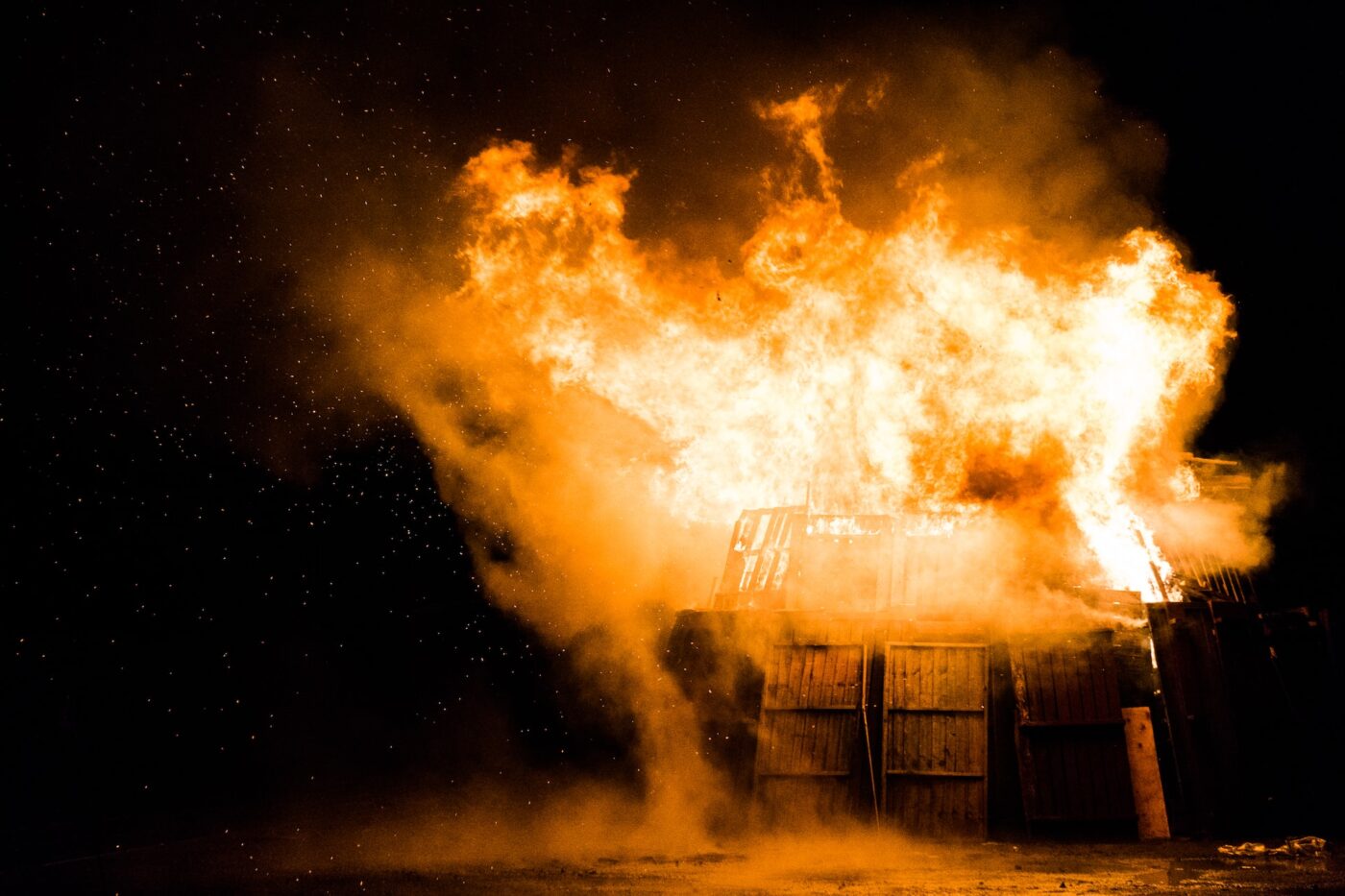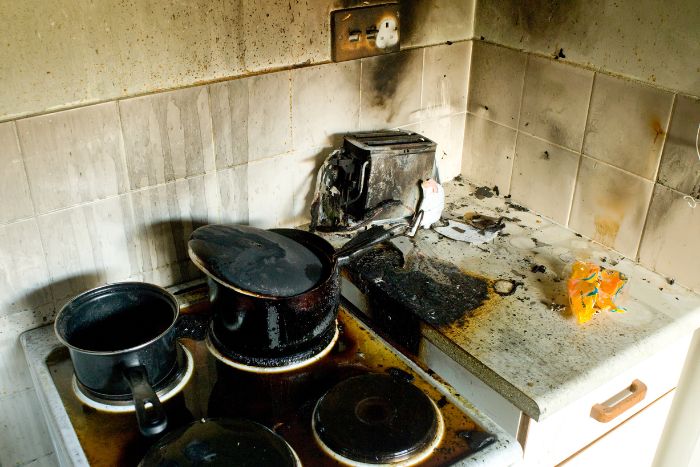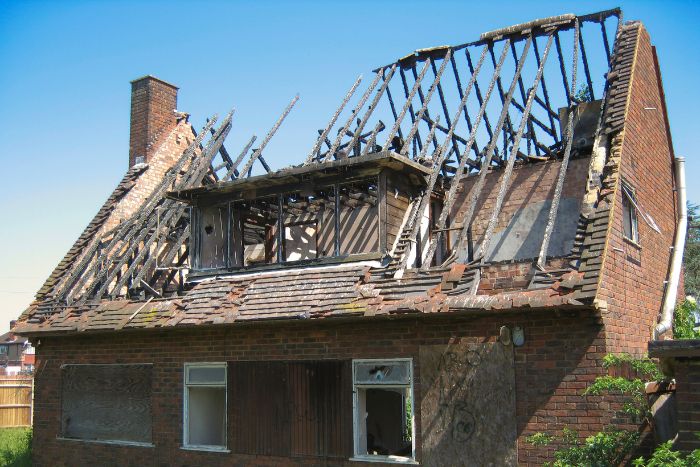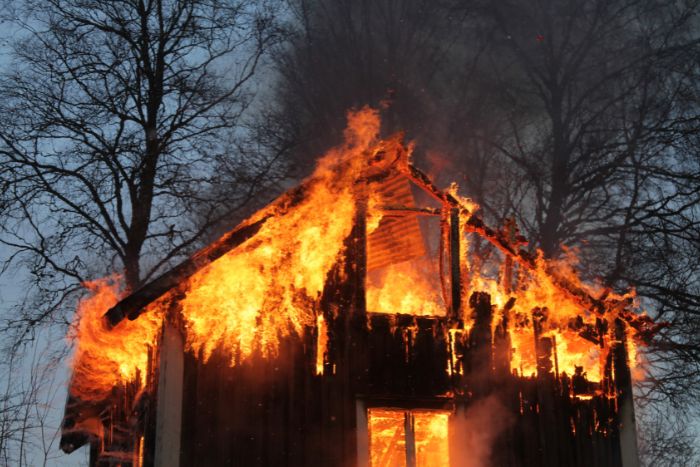September 12th, 2022. Jamie Williams
Should You Buy A Fire Damaged House?

Whether you’re purchasing your first home or expanding your property portfolio, if you’ve come across a home with previous fire damage on the property market, it’s probably posed quite the dilemma.
Buying a property after its been exposed to fire damage comes with obvious risks, and you’re likely wondering: Should you buy a fire damaged house?
In short, it depends on the state of the property in question and the type of damage. No fire damaged property should be purchased without thorough investigations to assess the level of damage you’re looking at as well as the risk associated with buying such a property.
Thorough investigations are essential as a house with a history of fire damage can impact your chances of getting a mortgage. As such, you should seek advice from a reputable mortgage broker to work out the best course of action regarding a fire damaged property.
In this guide, we’re going to dive into the key factors to look out for when purchasing a fire damaged property, the pros and cons, and how a fire damage history can affect borrowing.
Let’s get started.
What To Look Out For When Purchasing A Fire Damaged Property
When buying a fire damaged house, there are a variety of things to look out for.
Types of damage to be aware of after a fire include, but are not limited to:
- Structural damage
- Smoke damage
- Plumbing damage
- Asbestos damage
- Water damage
1. Structural Damage
Structural damage is probably the first type that would come to your mind when buying a fire damaged home.
Structural damage means that the floors, frames, roof, walls, or foundations have become compromised after a fire.
Ensuring the load bearing walls on a home have been giving the all-clear by a structural engineer is critical for your health and safety and to ensure you’re protecting your investment.
2. Smoke Damage
When it comes to smoke damage, there are stain and smell issues to contend with, but also a number of wider health implications which you’ll need to be aware of.
Health implications associated with smoke damage include difficulties breathing as well as skin and sinus irritations to name a few.
As such, it’s essential to get a professional in to assess the smoke damage before you consider putting down a deposit.

Health implications associated with smoke damage include difficulties breathing as well as skin and sinus irritations to name a few.
3. Plumbing Damage
A type of damage to check when buying a house after its been impacted by a fire is plumbing damage.
It’s crucial to check whether any of the copper or PVC piping has been left damaged in the wake of the fire.
Pipes can be damaged by the actual fire, residual heat, and even smoke.
Failure to carry out the necessary checks to establish whether plumbing damage has occurred is a detrimental mistake that can prove costly.
4. Asbestos Damage
After a fire occurs, any home constructed before 1989 will need to undergo an asbestos inspection.
Asbestos is highly durable, but during a fire, asbestos materials can become damaged and release asbestos fibres into the air.
Asbestos fibres can be microscopic and can cause cancer if they become inhaled as a result of the necessary inspections not being carried out.
5. Water Damage
At first glance this one may seem a little odd but just think about it, what do they use to put out fire and are they really concerned about the additional damage when tackling the blaze? Sadly, the water can cause just as much damage as the fire it was trying to put out.
When it comes to water, you want to think about mold: this can grow anywhere where excess water has been, including under appliances and in roofs/basements.
You will need to ensure the property has been thorough checked. Check ducts: chemicals are added to the water firefighter’s use, meaning you’ll need to check they haven’t leaked into any ducts, which could cause serious air quality issues.
You’ll also need to check for any warping of floors and frames. Be sure to check all interior wood structures for any warping caused by water exposure.

After a fire occurs, any home constructed before 1989 will need to undergo an asbestos inspection.
The Issues of Buying a Fire Damaged House
As you can see from our list, there are a lot of different variables to consider when buying a fire damaged home, making it a complex decision. You’ll really need to, quite literally, scratch the surface to ensure any fire damage hasn’t been masked by new carpet or plasterboard.
The most important thing you can do is to get the home professionally inspected. This is the only way you’ll know if all potential issues have been resolved in line with regulations and are up to code.
The Positives of Purchasing A Fire Damaged Property
On the flip side, a property that has been renovated following fire damage may cost you a lot less. Due to them often being undervalued, homeowners could find themselves with a higher ROI (return on investment).
If the home you’re looking at has not yet been refurbished, you might be able to make the necessary repairs for less than estimated. Should the renovations required be extensive, this will give you a unique opportunity to redesign the layout of certain areas of the house.

The most important thing you can do before buying a house after fire damage is to get the home professionally inspected.
Does The Fire History Influence Borrowing?
It does, depending on the severity of the damage. If the home is not deemed habitable, it poses a health risk to whoever is buying it and a financial risk to the lender.
A good workaround is bringing the property into a mortgageable state using short-term bridging or refurbishment finance, both of which we at Pure Property Finance can help you with.
Get in touch with a member of our team today or inquire on our website to learn how we can assist you further.
Article By Jamie Williams
September 12th, 2022
Jamie Williams is an integral part of our specialist finance team. He is an expert in bridging and development finance, as well as commercial and second charge mortgages.
With over 17 years experience in the mortgage and specialist finance world, Jamie uses his unrivalled knowledge to provide the ultimate client experience.
See more articles by Jamie




